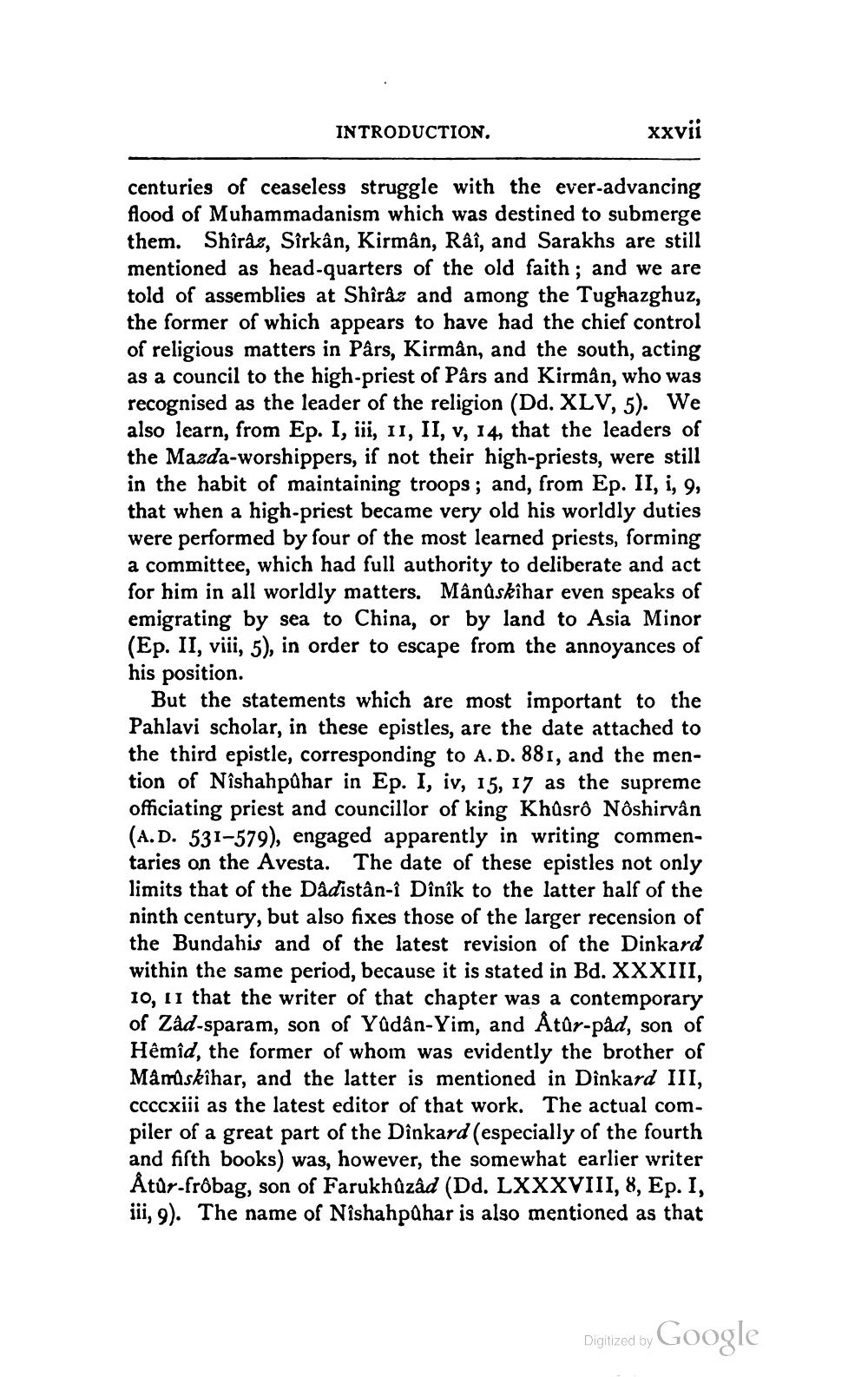________________
INTRODUCTION.
xxvii
centuries of ceaseless struggle with the ever-advancing flood of Muhammadanism which was destined to submerge them. Shîraz, Sîrkân, Kirmân, Râî, and Sarakhs are still mentioned as head-quarters of the old faith; and we are told of assemblies at Shiraz and among the Tughazghuz, the former of which appears to have had the chief control of religious matters in Pârs, Kirmân, and the south, acting as a council to the high-priest of Pârs and Kirmân, who was recognised as the leader of the religion (Dd. XLV, 5). We also learn, from Ep. I, iii, 11, II, v, 14, that the leaders of the Mazda-worshippers, if not their high-priests, were still in the habit of maintaining troops; and, from Ep. II, i, 9, that when a high-priest became very old his worldly duties were performed by four of the most learned priests, forming a committee, which had full authority to deliberate and act for him in all worldly matters. Mânûskîhar even speaks of emigrating by sea to China, or by land to Asia Minor (Ep. II, viii, 5), in order to escape from the annoyances of his position.
But the statements which are most important to the Pahlavi scholar, in these epistles, are the date attached to the third epistle, corresponding to A.D. 881, and the mention of Nîshahpühar in Ep. I, iv, 15, 17 as the supreme officiating priest and councillor of king Khasrô Nôshirvân (A.D. 531-579), engaged apparently in writing commentaries on the Avesta. The date of these epistles not only limits that of the Dâdistân-î Dînîk to the latter half of the ninth century, but also fixes those of the larger recension of the Bundahis and of the latest revision of the Dinkard within the same period, because it is stated in Bd. XXXIII, 10, 11 that the writer of that chapter was a contemporary of Zad-sparam, son of Yadân-Yim, and Åtür-påd, son of Hemid, the former of whom was evidently the brother of Måruskihar, and the latter is mentioned in Dinkard III, ccccxiii as the latest editor of that work. The actual compiler of a great part of the Dinkard (especially of the fourth and fifth books) was, however, the somewhat earlier writer Åtūr-frobag, son of Farukhůzâd (Dd. LXXXVIII, 8, Ep. I, jii, 9). The name of Nîshahpahar is also mentioned as that
Digitized by Google




